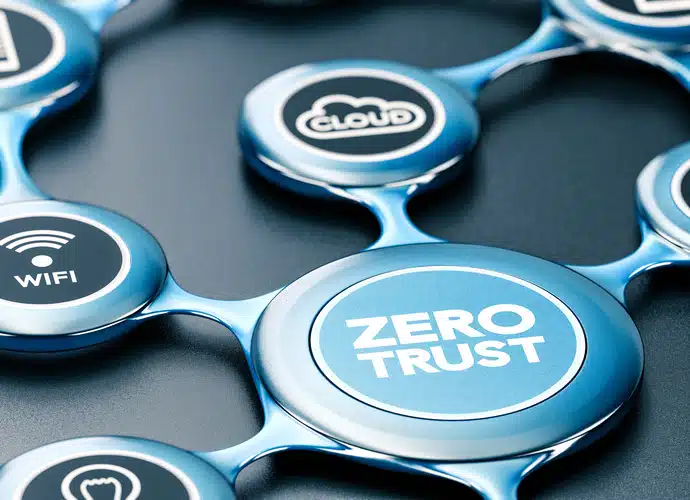
Industry turns to zero trust
A new study of industrial enterprises shows 72 percent have started adopting zero trust principles, with 38 percent of organizations establishing, implementing, and optimizing zero trust control measures.
The study from Xage and Takepoint Research surveyed over 250 cybersecurity senior leaders across critical infrastructure organizations, energy, utilities, transportation, oil and gas and manufacturing to gauge the current state of zero trust implementation.

New targeted attack strategies used against industrial companies
A new, rapidly evolving, series of spyware campaigns attacking more than 2,000 industrial enterprises around the world has been uncovered by experts at Kaspersky.
Although the malware used in these attacks belongs to well-known commodity spyware families, they stand out from the mainstream due to the very limited number of targets in each attack -- no more than a few dozen -- and the very short lifetime of each malicious sample.

How control system vulnerabilities can threaten the oil industry [Q&A]
The Colonial Pipeline attack in 2021 highlighted how vulnerable industrial control systems, and in particular energy supplies, can be to cyberattacks.
The oil and gas sector is particularly at risk as it often relies on older devices that don't receive timely firmware updates. We spoke to Mark Kerzner, CEO and co-founder of ElephantScale and Scaia AI who has worked with many oil industry leaders, to find out more about the risks and how they can be addressed.

The challenges of protecting industrial control systems [Q&A]
Industrial control systems are often critical to things like power and water supplies. In theory they should have the strongest protection available.
In practice, however, this isn't always the case. It's estimated that 91 percent of industrial companies are vulnerable to cyberattacks. So what can businesses do to protect themselves and to recover quickly if they do get attacked?

Energy industry hit by surge in mobile phishing threats
Energy organizations provide infrastructure that's essential for the safety and well being of society, but recent events like the Colonial Pipeline breach demonstrate that the industry is particularly vulnerable to cyberattacks.
A new report on energy industry threats finds that 20 percent of energy employees have been exposed to a mobile phishing attack in the first half of 2021, a 161 percent increase from the second half of 2020.

91 percent of industrial companies at risk of cyberattacks
Industrial businesses were the second most targeted sector in 2020 and new research from Positive Technologies shows that an external attacker could penetrate the corporate network at 91 percent of them.
In addition, Positive Technologies penetration testers gained access to the industrial control system (ICS) networks at 75 percent of these companies. Once criminals have obtained access to ICS components, they can shutdown entire production lines, cause equipment to fail, or incidents that could cause serious harm.

Poor security practice leaves industry open to cyber threats
Despite a marked increase in concerns around malware attacks and third-party risk, only eight percent of organizations with web applications for file uploads have fully implemented the best practices for file upload security.
This is among the findings of the latest Web Application Security Report from critical infrastructure protection specialist OPSWAT.

Critical manufacturing vulnerabilities soar in 2021
New research shows that critical manufacturing vulnerabilities rose 148 percent in the first half of 2021 with ransomware-as-a-service driving attacks.
The report from Nozomi Networks finds ICS-CERT vulnerabilities increased by 44 percent too. Manufacturing is the most susceptible industry with the energy sector proving vulnerable too.

89 percent of manufacturing businesses struggling with integration issues
A new report from Cleo reveals that B2B integration is a major problem, with 99 percent of manufacturers reporting issues in the last 18 months and 89 percent still struggling with them.
What's more this is costing money, with 42 percent losing over $500,000 in 2020 and 18 percent losing more than $1 million in revenue last year.

Claroty launches zero-infrastructure security for industrial enterprises
As recent attacks have shown, industrial networks need protection. But it needs to work in a way that doesn't add burdens of infrastructure, complexity and steep learning curves.
Claroty is addressing this with the release of Claroty Edge, a new addition to The Claroty Platform that delivers visibility into industrial networks without requiring network changes, using sensors, or having any physical footprint.

Top industries on which AI and ML will have the greatest impact
Artificial intelligence (AI) and machine learning (ML) have been two of the most disruptive technological advancements of the past several years.
Gartner predicts that by 2024, 75 percent of enterprises have shifted from AI pilot stage implementation to operationalization. Their effects have been wide-ranging and promise to continue into the foreseeable future. Businesses will gain a substantial competitive advantage by capitalizing on the benefits of AI and ML.
